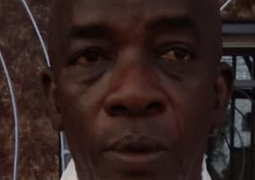Few days ago certain West African countries were ‘‘blacklisted or about to be barred’’ prompting unverified conversation regarding Banjul’s status thus resulting into an inquiry by this correspondent.
Nevertheless, the European Commission after ‘careful consideration’ added four African countries: Ghana, Mauritius, Uganda and Botswana to a new list of states to that effect.
According to the Commission, the concerned countries ‘‘pose financial risks to the European Union’’ due to their ‘‘shortfalls’’.
The overall list worldwide consists of over 20 countries.
Separately this correspondent also learnt that The Gambia is complimented for ‘‘doing a lot more despite over two decades of tyranny, uncontrolled and unrestrained financial policies of Yahya Jammeh’s government’’.
Furthermore, the country’s current financial sector including ‘’most banks as well as Gambia Revenue Authority’s (GRA) effective taxation systems are recognised and acknowledged’’.
Nevertheless, States affected are told by the EU to do more in order to remedy the situation. Consequently, most of the concerned countries pledged to change their rules in order to ‘‘address the shortfalls’.
The Point also uncovered that despite the warning, consequences and penalties could be hard-hitting and that amongst others such countries may be ‘’prohibited from receiving new funding from the EU’’.
The EU policy on high-risk third countries is based on Directive (EU) 2015/840, Article 9, and the Commission is fully mandated to identify the so-called high-risk third countries.
The EU therefore concluded that the blacklisted countries are having ‘‘strategic deficiencies in their regime on anti-money laundering and counter terrorist financing’’.
Additionally, EU officials vowed that something is needed to ‘put an end to dirty money infiltrating its own financial system’’.
Accordingly, banks and other financial institutions including tax firms are asked to ‘‘scrutinise’’ their clients who have any dealings with affected States.
Meanwhile, the updated list of countries is set to come into force by the end of the year.



